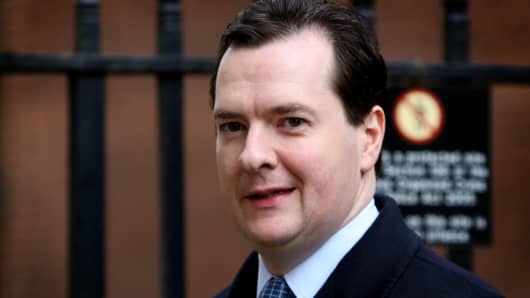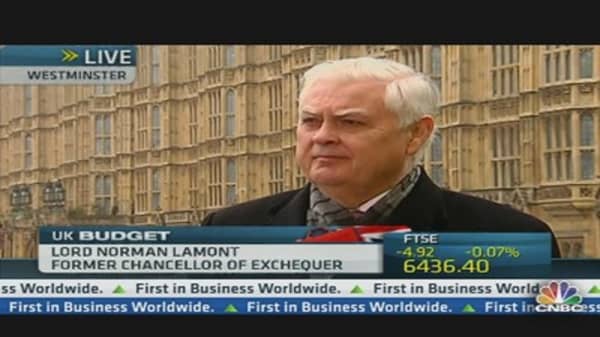A sharp downward revision for U.K. growth reignited fears on Wednesday that the country's credit rating could once again be downgraded as finance minister George Osborne's annual budget statement failed to inspire confidence.
Osborne said the U.K. economy is now estimated to grow by 0.6 percent in 2013, half the level in a December forecast of 1.2 percent.
He defended his track record to a rowdy parliament which over-rode the Speaker's orders on several occasions.
"We've now cut the deficit not by a quarter, but by a third," Osborne told lawmakers in the U.K. parliament. "Our economic plan combines monetary activism with fiscal responsibility and supply side reform," he said.
Osborne pledged an extra 3 billion pounds ($4.5 billion) for infrastructure projects from 2015-16 with money saved from government departmental budgets. The additional funds would be used for road and rail projects, Osborne said.
Corporation tax will be reduced to 20 percent from April 2015, Osborne said, but for the nation's banks this will be offset by a levy increase to 0.142 percent.
A planned increase in fuel duty and a beer duty will both be scrapped, he said, and the government will raise the rate of the personal tax allowance to 10,000 pounds ($15,100) in 2014-15, a year earlier than expected. A new home loan system was also announced where 3.5 billion pounds will be committed to shared equity loans to help home buyers over the next 3 years.
But news that public sector net borrowing as a share of GDP (gross domestic product) - used to measure how much the government borrows - will peak in 2016/17, a change from an earlier prediction of a peak in 2015/16, alarmed analysts.
Howard Archer, chief U.K. economist at IHS Global Insight said that the budget once again contained the "unappetizing and depressing" combination of reduced growth and higher public deficit forecasts.
"The strong likelihood is that the reduced growth and higher public finance forecasts will be the trigger for Standard & Poor's and or Fitch to follow Moody's in stripping the UK of its AAA rating," he said in a research note.




